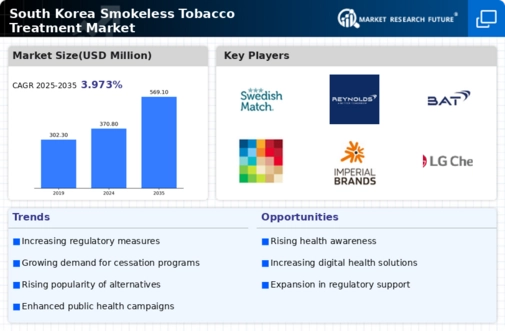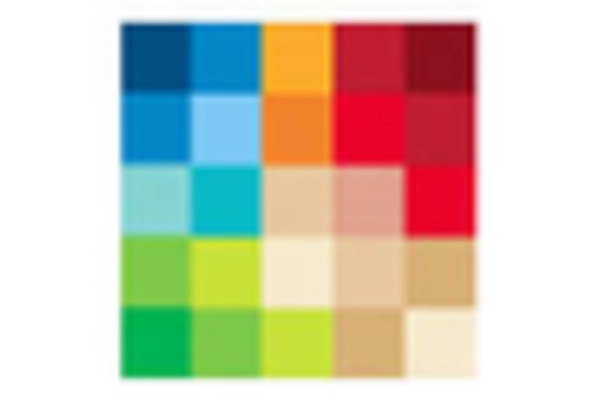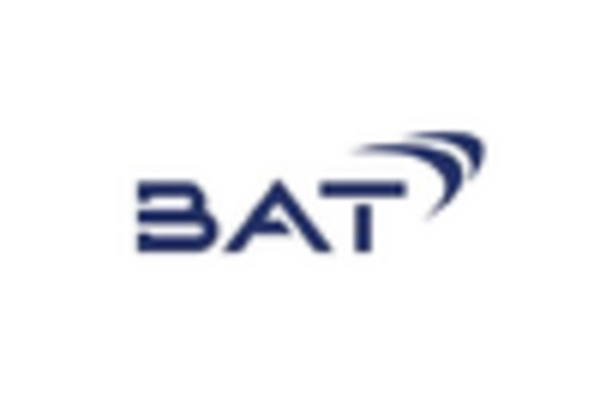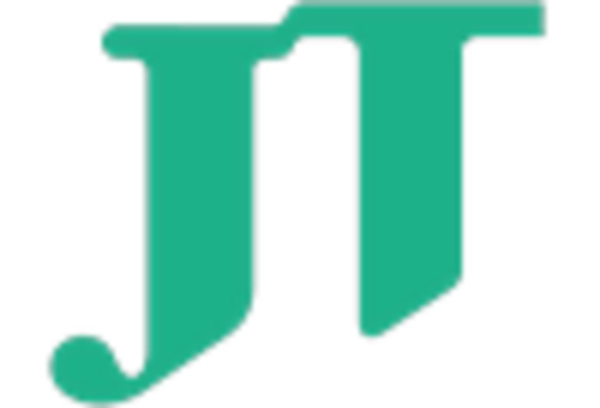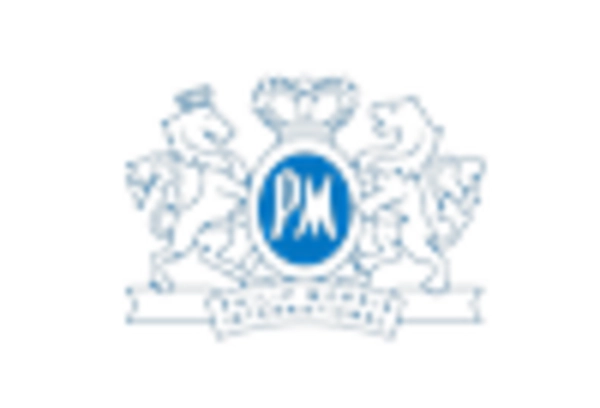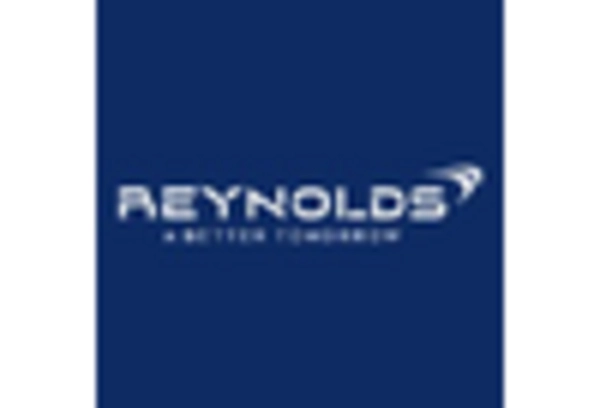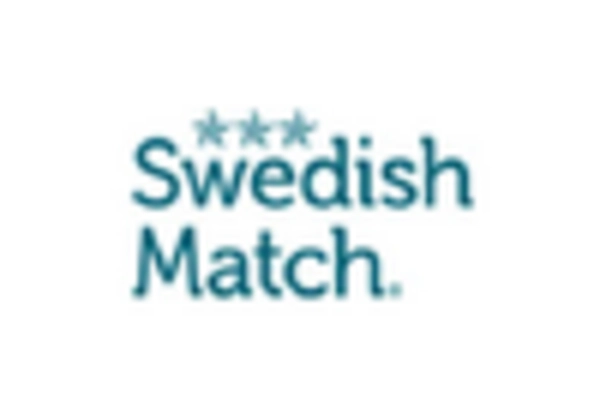Advancements in Treatment Technologies
Advancements in treatment technologies are poised to significantly impact the smokeless tobacco-treatment market. Innovations such as digital health applications and personalized treatment plans are becoming increasingly prevalent in South Korea. These technologies facilitate better tracking of user progress and provide tailored support, which may enhance the effectiveness of cessation efforts. For instance, mobile applications that offer real-time feedback and motivational support have gained popularity, with over 1 million downloads reported in 2025. Such advancements not only improve user engagement but also attract a younger demographic to the smokeless tobacco-treatment market. As technology continues to evolve, it is likely to play a pivotal role in shaping treatment strategies and outcomes.
Government Initiatives and Support Programs
Government initiatives aimed at reducing tobacco consumption in South Korea play a crucial role in shaping the smokeless tobacco-treatment market. The South Korean government has implemented various programs, including subsidies for cessation therapies and public health campaigns, which have reportedly increased the number of individuals seeking treatment. For instance, the government allocated approximately $50 million in 2025 to support anti-tobacco initiatives, which includes funding for smokeless tobacco treatment options. These efforts not only raise awareness but also provide financial assistance to those looking to quit, thereby driving demand for smokeless tobacco treatment solutions. The ongoing commitment from the government suggests a sustained growth trajectory for the market.
Increased Availability of Treatment Options
The increased availability of diverse treatment options is a notable driver for the smokeless tobacco-treatment market. In South Korea, a variety of cessation products, including nicotine replacement therapies and behavioral support programs, are now more accessible than ever. This expansion is partly due to the collaboration between healthcare providers and private companies, which has led to a broader range of solutions tailored to different user needs. Market data suggests that the availability of these options has increased by approximately 25% in the last year alone. As consumers become more aware of the various treatments available, the smokeless tobacco-treatment market is likely to see a corresponding rise in demand, fostering a competitive landscape that encourages innovation.
Cultural Shifts Towards Healthier Lifestyles
Cultural shifts in South Korea towards healthier lifestyles are influencing the smokeless tobacco-treatment market. As societal norms evolve, there is a growing emphasis on wellness and preventive healthcare. This trend is reflected in the increasing number of individuals opting for smokeless tobacco alternatives and seeking treatment to quit. Surveys indicate that around 40% of South Koreans now prioritize health and wellness, which has led to a surge in demand for cessation products and services. The smokeless tobacco-treatment market is likely to benefit from this cultural transformation, as more individuals recognize the importance of quitting tobacco for overall health. This shift may also encourage the development of new treatment modalities tailored to the preferences of health-conscious consumers.
Rising Incidence of Tobacco-Related Diseases
The increasing prevalence of tobacco-related health issues in South Korea appears to be a significant driver for the smokeless tobacco-treatment market. Reports indicate that approximately 30% of adults in South Korea are affected by diseases linked to tobacco use, including oral cancers and cardiovascular conditions. This alarming statistic has led to heightened public awareness and a growing demand for effective treatment options. As healthcare providers and policymakers focus on reducing the burden of these diseases, the smokeless tobacco-treatment market is likely to experience substantial growth. The government's initiatives to promote cessation programs and support for affected individuals further bolster this market, creating a conducive environment for innovative treatment solutions.


